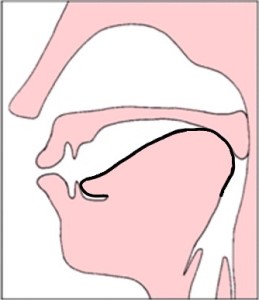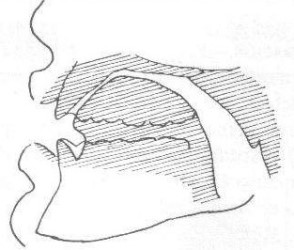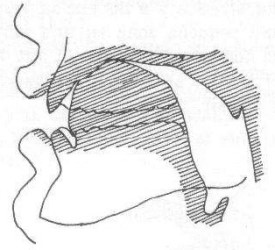It is necessary to dedicate the first lesson to the pronunciation of Quechua, since being a language that is not related to English has sounds that do not exist in that language.
Even so, it should be mentioned that most Quechua sounds also exist in Spanish.
For that reason I recommend that you watch these videos in which the pronunciation of Spanish is explained:
- The spanish alphabet, letters and their sounds. This video is not very technical, but very practical and straight to the point. Click here to see more videos of that type.
- Spanish Latin American Pronunciation Video 1: The Spanish Consonants. This video is much more technical than the previous one.
- Spanish Latin American Pronunciation Video 2: The Spanish Vowels. This video is the continuation of the previous one.
Another important point is that each Quechua letter has only one phoneme (sound) assigned.
According to the Quechua dictionary of Cusco, this is the alphabet:
A – CH – CHH – CH’ – E – H – I – K – KH – K’ – L – LL – M – N – Ñ – O – P – PH – P’ – Q – QH – Q’ – R – S – SH – T – TH – T’ – U – W – Y

In blue are the vowels and consonants, which are pronounced the same or very similar to Spanish. Keep in mind that the “W” has the same sound as the Spanish “U”, and often acts as a vowel.
In green I put the “H” because it is not mute, like in Spanish, but is pronounced as the “J” in Spanish, which is very similar to the sound of “H” in the English word “home”.
I also put the SH because it is a sound that does not exist natively in Spanish, but in English it is very common, it is pronounced the same as in the words: show, sheriff, Sharon.
In red are the Quechua consonants whose pronunciation does not exist in English. At the moment do not worry much about it, but I would recommend that you try to pronounce the Q and the LL, they are crucial sounds.
1. Pronunciation of “LL” and “Q” 😨
Why is it important to pronounce these 2 consonants? Think about thess examples:
- The words Llank’an (he works) and Yanqan (something useless, vain) are pronounced in the same way in Spanish, i.e. /yankan/, but they have a very different meaning in Quechua. Listen to the pronunciation:
- Llullan (liar) and Yuyan (he thinks). A Spanish speaker would pronounce both as /yuyan/. Listen to the pronunciation:
But, the question is how to learn to pronounce these phonemes?
Pronunciation of “Q”
To pronounce the “Q”, pay attention to your tongue. For example, when you say the word “kan,” your tongue sticks to the palate at an intermediate point between the center and the back of it.
In the case of the word “qan” you have to stick your tongue to the back of your palate, blocking the airway that goes to the nose; and the tip of the tongue resting on the lower teeth.

With that in mind try to pronounce the word “qelqa” (writing).
Do not be discouraged if you do not succeed quickly, everything is a matter of practice and practice.
Pronunciation of “LL”
Pronouncing the “LL” is similar to pronouncing the “Y” in yellow, when pronouncing the “Y” look at how the air comes out through the central part of your mouth, because your tongue is in the following position:

In the case of LL, it is necessary to block the passage of air, sticking the tongue to the palate, to force it to exit through the sides of the mouth.

Now, try to pronounce the word ‘yuyan’, but force your tongue to stick to the palate and force the air to exit through the sides of your mouth, and you will see how you get the sound ‘llullan’ (liar), below is the audio so you can hear how to pronounce ‘llullan’.
2. Quechua consonant pronunciation
Let’s see how the following consonants are pronounced:
CHH – CH’ – KH – K’ – PH – P’ – TH – T’ – QH – Q’
But, as these are not so essential, for the moment I will not stop to explain you their pronunciation in detail. I just leave you these little tips:
- When the consonant is accompanied by an “h” it means that the sound is exhaled, like blowing.
- When there is an apostrophe ( ‘ ) it is said that they are reinforced consonants and only in the case of Q’ is it called a glotalized phoneme, it is as if there was a small explosion, because you have to block the air briefly and then expel it quickly.
Let’s see practical examples.
Ch – Chh – Ch’
Pay attention to the differences in pronunciation of the following words: chayta (to that), chhaynaqa (then) and ch’aska (star).
K – Kh – K’
Pay attention to the differences in the pronunciation of the following words: kanka (roast), khanka (grimy) and k’anka (rooster).
P – Ph – P’
Pay attention to the differences in the pronunciation of the following words: pacha (world), phaway (run) and p’acha (clothes).
T – Th – T’
Pay attention to the differences in the pronunciation of the following words: takay (knock, e.g. a door), thanta (worn, old) and t’anta (bread).
Q – Qh – Q’
Pay attention to the differences in the pronunciation of the following words: qelqa (writing), qhapaq (rich, wealthy) and q’alan (naked).
But don’t focus too much on these sounds, with LL and Q is enough to start.
3. Stressed Syllables within a Quechua word
Almost all the Quechua words are stressed in the penultimate syllable and the rest in the final syllable, those are the only two possible cases.
Note that in all the examples I give you, the words are stressed in the penultimate syllable: Llank’an, yanqan, llullan, qelqa, chayta, chhaynaqa, ch’aqesqa, kachun, khamuna, k’amin, pachapi, phawaq, p’achakuq, takaspa, thanta, t’antan, qhapaq, q’alan
But, I also told you that they can be stressed in the final syllable, how can I realize that?
This is very easy, all the Quechua words that are stressed in the final syllable always use written accents, for example: yaqapaschá (maybe), allinmá (that’s great!).
4. Quechua words are formed by adding suffixes
To understand it better I give you an example with the root word “Munay” (in red, bold and italic I put the syllable stress, and in other colors the suffixes):
- Munay (to want)
- Munakuy (to love)
- Munakuq (the one who loves)
- Munakuqniyki (the one who loves you)
- Munakuqniykichis (the one who loves you guys)
- Munakuqniykichiskuna (those who love you guys)
- Munakuqniykichiskunapaq (for those who love you guys)
- Munakuqniykichiskunapaqpas (also for those who love you guys)
It is very important that you pay attention to this, because learning Quechua is almost the same as learning the use of its suffixes.
In the next grammar lesson I will show you the personal pronouns of Quechua.
Thank you, great resource. I love this and I love Quechua.
Thank you Leigh, I’m glad you like it
Thank you so much! I’m trying to learn my native language, and this is really helpful!
I’m glad you like it